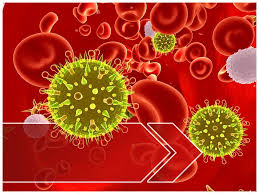Biotechnology and Genetics Engineering
Introduction
Bio-Technology is the use of living things especially cells and bacteria for production of various products. It is a combination of various technologies, applied together to living cells, including not only biology, but also subjects like mathematics, physics, chemistry and engineering. Its application ranges from agriculture (Animal Husbandry, Cropping system, Soil science and Soil Conservation, Plant Physiology, Seed Technology etc and Crop Management) to industry (food, pharmaceutical, chemical, bioproducts, textiles etc.), medicine, nutrition, environmental conservation, Cell Biology, making it one of the fastest growing fields. The science of biotechnology is also used to modify genetic structure in animals and plants to improve them in some way.
Genetic Engineering is a highly complicated and advanced branch of science which involves a wide range of techniques used in changing the genetic material in the DNA code in a living organism. 'Genetic Engineering' means the deliberate modification of the characters of an organism by the manipulation of its genetic material. Genetic engineering comes under the broad heading of Biotechnology. There is a great scope in this field as the demand for genetic engineers are growing in Pakistan as well as abroad.
Nature of Work
Biotechnologists
- Help in increasing productivity and in improving energy production and conservation by conducting research and development work.
- Work with chemical processes, genetic engineering, textile development cosmetic development etc..
- Exploit and control the potential of micro-organisms and living systems for the benefit of mankind using micro-organisms in the production drinks, bread, cheese and yoghurt,
- Find new ways to design and use antibiotics and pesticides, using genetic modification and genome mapping to
- Improve crop production or crop resistance to pests and diseases, and
- Combating environmental pollution by developing the use of biosensors for early detection of pollutants.
- Design and conducting experiments and observe and analyze scientific data,
- Find new ways to treat industrial waste for recycling of sewage sludge.
- Carry out their work in the laboratories, as it is a scientific research oriented field. As biotechnology is an interdisciplinary field,
- Help medical professional in improving in the methods of diagnosis, medicines and vaccinations for diseases
Genetic Engineers
- Aim at re-arranging the sequence of DNA in gene using artificial methods.
- Extract DNA out of one organism, change it using chemicals or radiation and subsequently put it back into the same or a different organism. For eg: genes and segments of DNA from one species is taken and put into another species.
- Study how qualities and characteristics are transmitted through the generations, and how genetic disorders are caused.
- Research the causes of a disease and discover potential cures if any.
- carry out their work in the laboratories,
- Work with microsyringes, plastic disposable apparatus, controlled sterility/temperature/humidity/lighting environments, DNA separation and transfer systems, DNA analysis etc.
- Maintain organisms used for the genetic engineering: patients, animals, plants and microorganisms including cells and tissues from the higher organisms. A great deal of care and expense goes in keeping these living beings alive and healthy.
- Like biotechnologist, they work together with professionals from different fields such as biology, microbiology, molecular biology, chemistry, biochemistry, immunology, biotechnology, engineering, food science, agriculture etc.
Genetic engineering examples include taking the gene that programs poison in the tail of a scorpion, and combining it with a cabbage. These genetically modified cabbages kill caterpillars because they have learned to grow scorpion poison (insecticide) in their sap. Genetic engineering could create crops that grow in desert heat or without fertiliser and it could also make bananas or other fruit which contain vaccines or other medical products.
Specializations
Genetic engineering and biotechnology have specializations related to plants, animals and human beings. Genetic engineering in plants and animals may be to improve certain natural characteristics of value, to increase resistance to disease or damage and to develop new characteristics etc. It is used to change the color, size, texture etc of plants otherwise known as GM (Genetically Modified) foods.
|
Education |
Admission Requirements |
|
|
B.Sc. M.Sc. BS MS/ M.Phill (if BS/M.Sc.) Ph.D. |
2 Years 2 Years 4 Years 2 Years 3-5 Years |
|
|
Qualities Required |
Job Opportunities |
|
|
|
|
Views: 123755




